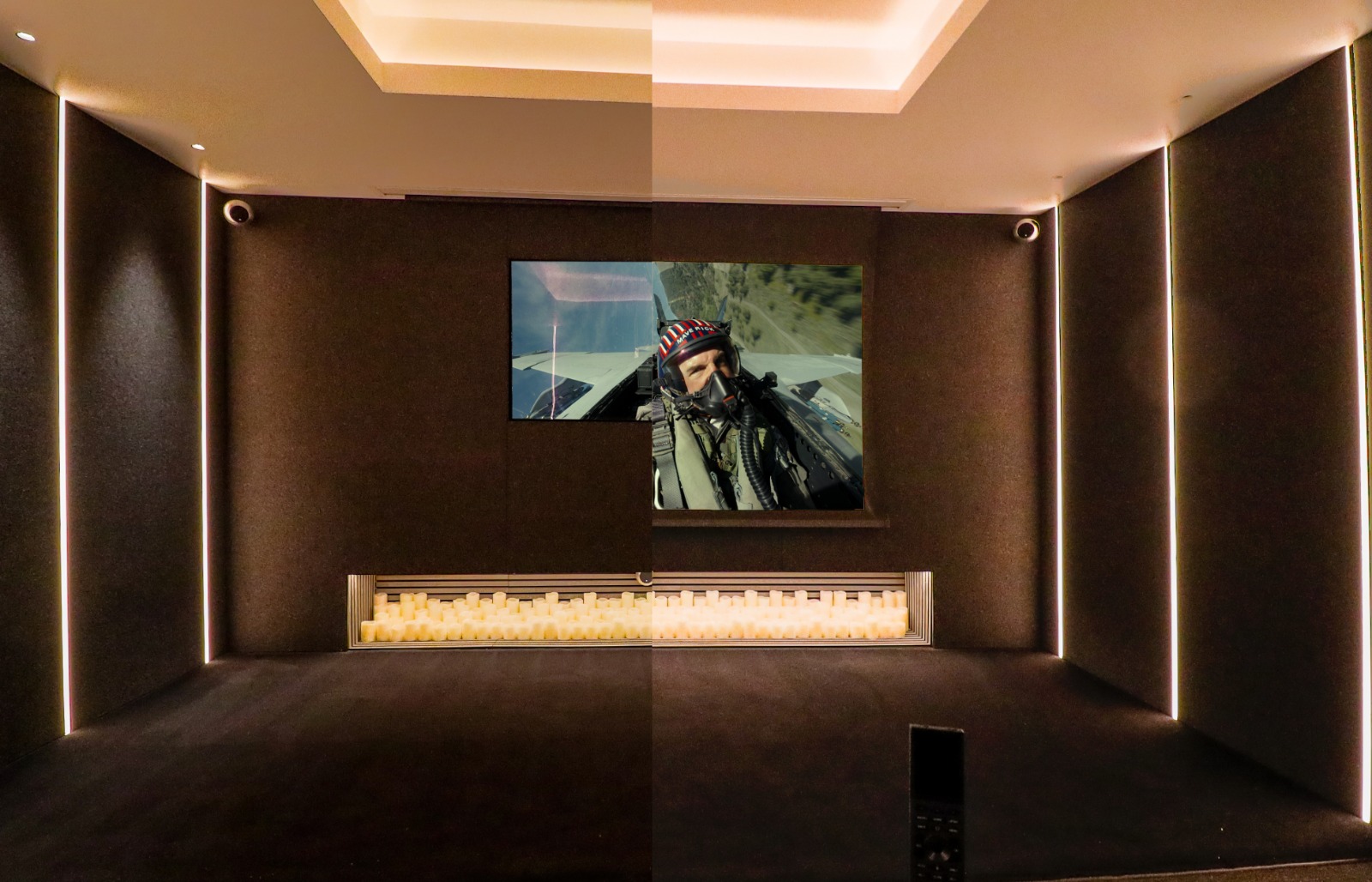
When designing a home cinema for your smart home, one of the most important decisions you'll need to make is whether to invest in a high-end projector and screen setup or a large TV or panel display. Both options have their pros and cons, and the choice ultimately depends on your preferences and requirements. In this blog post, we'll compare the key features and benefits of projectors and TVs to help you make an informed decision for your home cinema experience.
High-end projectors can deliver impressive picture quality, offering a cinematic experience with large, vibrant images. Many projectors now support 4K resolution and HDR, providing exceptional detail, contrast, and colour reproduction. Large TVs and panel displays have also made significant advancements in picture quality, with OLED and QLED technologies providing deep blacks, rich colours, and sharp details. Like projectors, many TVs now support 4K resolution and HDR for an immersive viewing experience.
One of the main advantages of a projector setup is the ability to project a much larger image than a TV, often reaching up to 120 inches or more. This creates an immersive, cinema-like experience that is hard to replicate with a TV. While TVs are available in increasingly larger sizes, they typically max out around 85 inches, making them a more suitable option for smaller rooms or those who prefer a more intimate viewing experience.
Projectors are more sensitive to ambient light, which can wash out the image and reduce contrast. As a result, projectors work best in darkened rooms or those with controlled lighting conditions. TVs, on the other hand, perform better in bright rooms or environments with more ambient light. They generally offer higher brightness levels and can maintain better contrast and colour accuracy in well-lit spaces.
Projector setups typically require more space and a more involved installation process, including mounting the projector, installing the screen, and managing the necessary cables. However, once installed, projectors offer greater flexibility in terms of screen size and placement. TVs are generally easier to install and require less space, making them a more practical choice for smaller rooms or multi-purpose spaces. However, TVs are less flexible when it comes to screen size and placement, as they are usually fixed in a single location.
Projectors require occasional maintenance, such as replacing the lamp, which can add to the overall cost of ownership. However, high-end projectors often have a longer lifespan, with some models offering up to 20,000 hours of use. TVs typically require less maintenance and have a longer lifespan than projectors. Most modern TVs can last for several years without needing any significant repairs or replacements, making them a more reliable choice for long-term use.
Both high-end projectors and large TV or panel displays offer exceptional home cinema experiences, but the choice between them depends on your personal preferences and requirements. Consider factors such as picture quality, screen size, viewing conditions, installation, and maintenance when making your decision. No matter which option you choose, Art of Smart can help you design and install the perfect home cinema solution for your smart home, providing expert advice and support throughout the process.